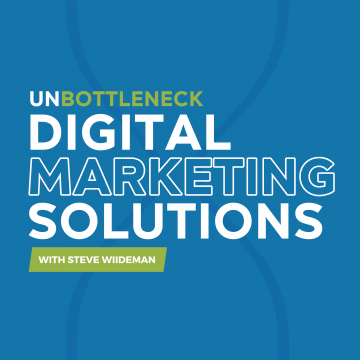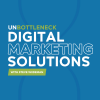Podcast: Play in new window | Download
Building Links Like the Experts
In this episode, Steve Wiideman is taking a virtual trip to Amsterdam for an enlightening and entertaining conversation with Link Building expert and extraordinaire, Bibi Raven! We’ll unpack the top methods used by experts to build high quality, authoritative links to your website. You’ll also hear Bibi’s outreach pet peeves, and her wildest strategy for link building.
About Our Guest: Bibi Raven
Bibi Raven is founder of BibiBuzz, dedicated to the practice of “Natural Link Building by Humans, not Automation.” Before link building, Bibi worked as a social media marketer for a worldwide truck trader for 6 years. Afterwards, she became an affiliate marketer and growth hacker, which has allowed her to pivot into a phenomenal link builder.
Through trial and error, Bibi has learned how to use her wit, humor and charm to successfully build links for many companies.
Sponsored by Ryte
Bibi Raven on LinkedIn
Bibi Raven on Twitter
Featured in this episode:
- Link Building – Breaking It Down in Simple Terms
- The Many Approaches to Link Building
- Pet Peeves to Avoid in Outreach
- Tips for Higher Response Rates
Link Building Simplified
Link building is the practice of getting a clickable link from another website to link back to your website. The purpose of this link is to redirect users to your website for supplemental content.
According to Steve and Bibi, link Building helps you become the answer to common questions because by obtaining quality links, you are also building authority within your industry and search engines.
As simple as link building may sound, it takes strategy and creativity to be successful.
Types of Link Building Approaches
Here are some popular approaches to link building that you can use:
- Reference – To create informational content that will be helpful to users.
- Cross-Promotion – To collaborate with people in similar industries for a mutually beneficial opportunity for exposure (ex. Podcast interviews)
- Contribution – To offer exclusive content such as articles, photos, infographics for a website to use.
- Sponsorship – To pay for visibility to drive referral traffic (ex. Local charities, community / industry events, etc.)
A couple popular outreach approaches that have proven to be successful include:
- Create free tools for things that are relevant to your industry (ex. Calculator to save the user time and money)
- Compile comprehensive data into one article to make it easier for users to find what they’re looking for in one place
Pro-Tip: Research what people are looking for within a specific industry and create helpful resources based on those curiosities
Building Quality Links Over Quantity
Don’t get in the habit of blasting 100+ emails in hopes of getting a response back. Instead, focus on personalizing each email based on who you are reaching out to. When you focus on blasting a general email, the chances of getting a response are slim to none. However, when you take the time to carefully craft individual emails, it will pay off when you receive more replies in your inbox.
Tips for Higher Response Rates
- Make a Connection – Take a human approach by being personable. Don’t present yourself as a business because the conversation then appears to be transactional thus turning off the reader.
- Lighten Up – It’s okay to be lighthearted by using jokes and humor to grab the reader’s attention and break the ice. This can be most effective in the subject line as it is the first thing they will see.
- Be Helpful – Offer informational content, not sales content. Focus on being a helpful resource rather than a seller.
Pro-Tip: Maximize efficiency by making a template for each industry / niche that you plan to reach out to and customize each template as you do your outreach.
Don’t Be “That” Person
According to Bibi, editors and bloggers find it annoying when they receive emails from people requesting links who’ve never taken the time to actually look at their website.
When you send an email without taking the time to really study their website, it becomes impersonal and can be interpreted as selfish. So take the time to pay attention to the details of a specific page or topic on that website and be ready to reference it in your email.
So before you draft that outreach email, do the work by taking the time to really look at their website and offer something valuable based on the content they already have (or don’t yet have *wink, wink*).
Keep up with the best link building strategies and digital marketing essentials. Follow Steve on LinkedIn!




